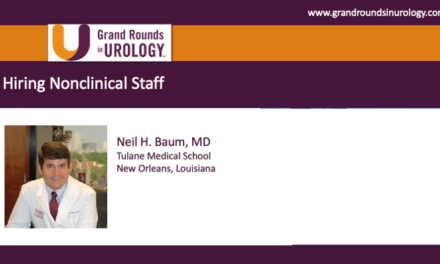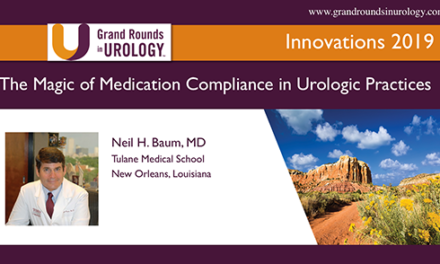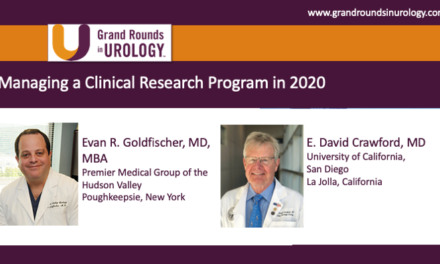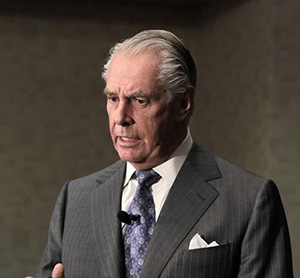Evan R. Goldfischer, MD, MBA, FACS, presented “How to Optimize a Telehealth Visit” during the 31st International Prostate Cancer Update in July 2021 in Snowbird, Utah.
How to cite: Goldfischer, Evan R. “How to Optimize a Telehealth Visit.” July 2021. Accessed Apr 2024. https://dev.grandroundsinurology.com/how-to-optimize-a-telehealth-visit/
How to Optimize a Telehealth Visit – Summary
Evan R. Goldfischer, MD, MBA, FACS, urologist and Director of the Research Department at Premier Medical Group in Poughkeepsie, New York, and President-Elect of LUGPA, discusses how a medical practice can adapt to telehealth by adopting certain procedures for patients, doctors, and staff. He suggests that even if COVID-19 goes away, telehealth is here to stay because it produces high satisfaction rates amongst patients, is good for periods of inclement weather, can allow for weekend and evening billing of patient calls, can extend a practice to other regions, can be used for inpatient consults, and can be used for ER visits. Dr. Goldfischer acknowledges that working with new telehealth technology can be challenging for staff and recommends that staff are made familiar with the technology so that they in turn can instruct patients on its use. He also recommends that telehealth visits are scheduled during a dedicated block of time and aren’t interspersed with inpatient visits, that charts are prepped with all necessary lab results and notes, and that there is no need for a physical exam or any in-person sample collection. He also encourages video over audio visits. Dr. Goldfischer says that schedulers can help patients prepare for a telehealth visit by testing a patient’s ability to use the necessary technology and by having family members or nursing home staff present with the patient for the visit 10 minutes of the appointment. He suggests that doctors prepare by having 2 computers set up (1 for video and 1 for the electronic medical record), reviewing records ahead of time, being in a quiet and isolated room to preserve confidentiality, looking professional and not being distracted, and checking computer connectivity ahead of time. Dr. Goldfischer stresses the importance of focusing on the patient, engaging family members, taking in the patient’s surroundings, and making sure that the patient is engaged during the appointment. He recommends scheduling any follow-ups immediately after the visit and sending a letter or copy of the office notes if the doctor is unsure whether the patient processed all the information.
About The 31st Annual International Prostate Cancer Update:
The International Prostate Cancer Update (IPCU), founded in 1990, is a multi-day CME conference focused on prostate cancer treatment updates with expert, international faculty. It is led by expert physicians and is designed for urologists, medical oncologists, radiation oncologists, and other healthcare professionals involved in the diagnosis and treatment of prostate cancer. Dr. Goldfischer delivered this educational activity during the 31st iteration of the meeting in July 2021 in Snowbird, Utah.






